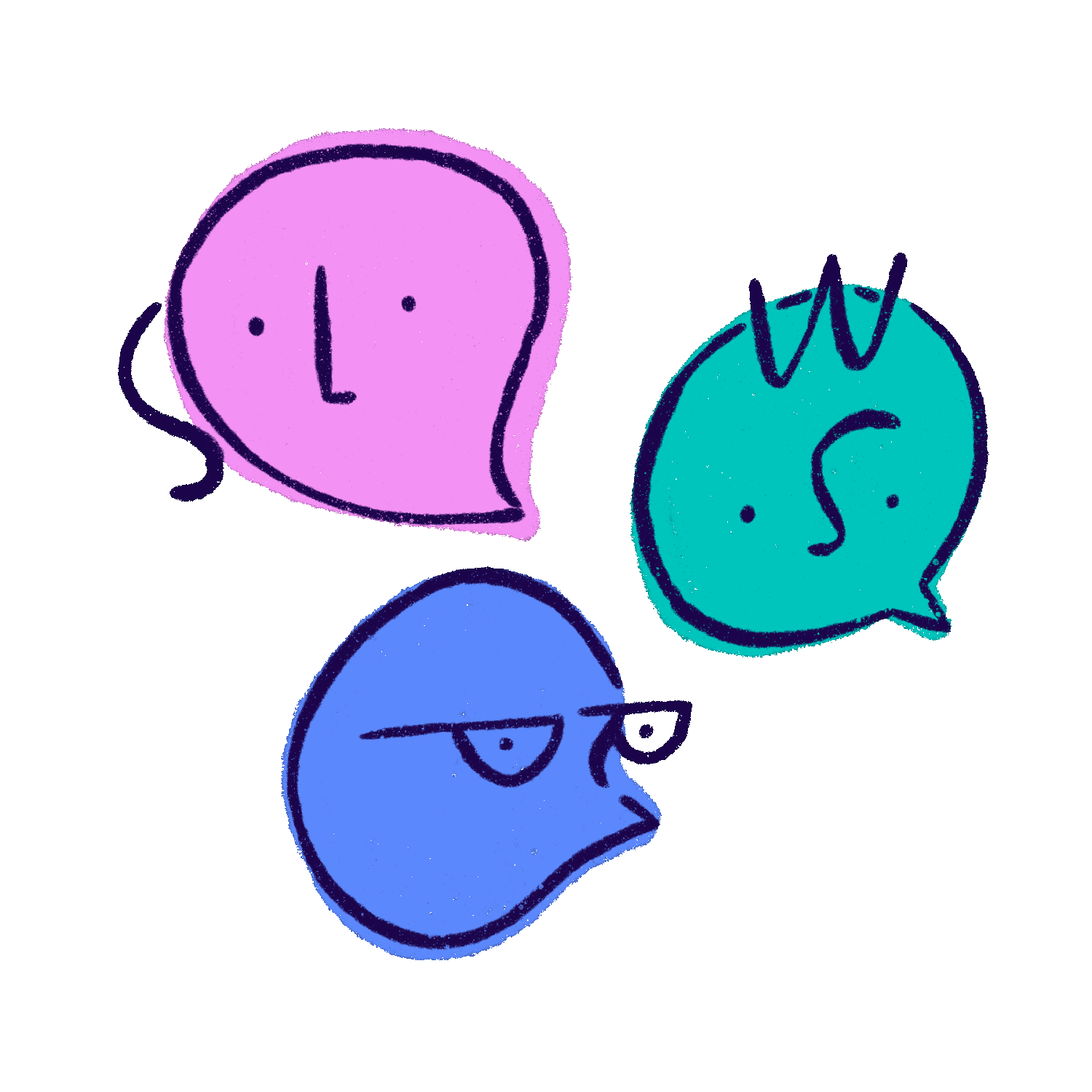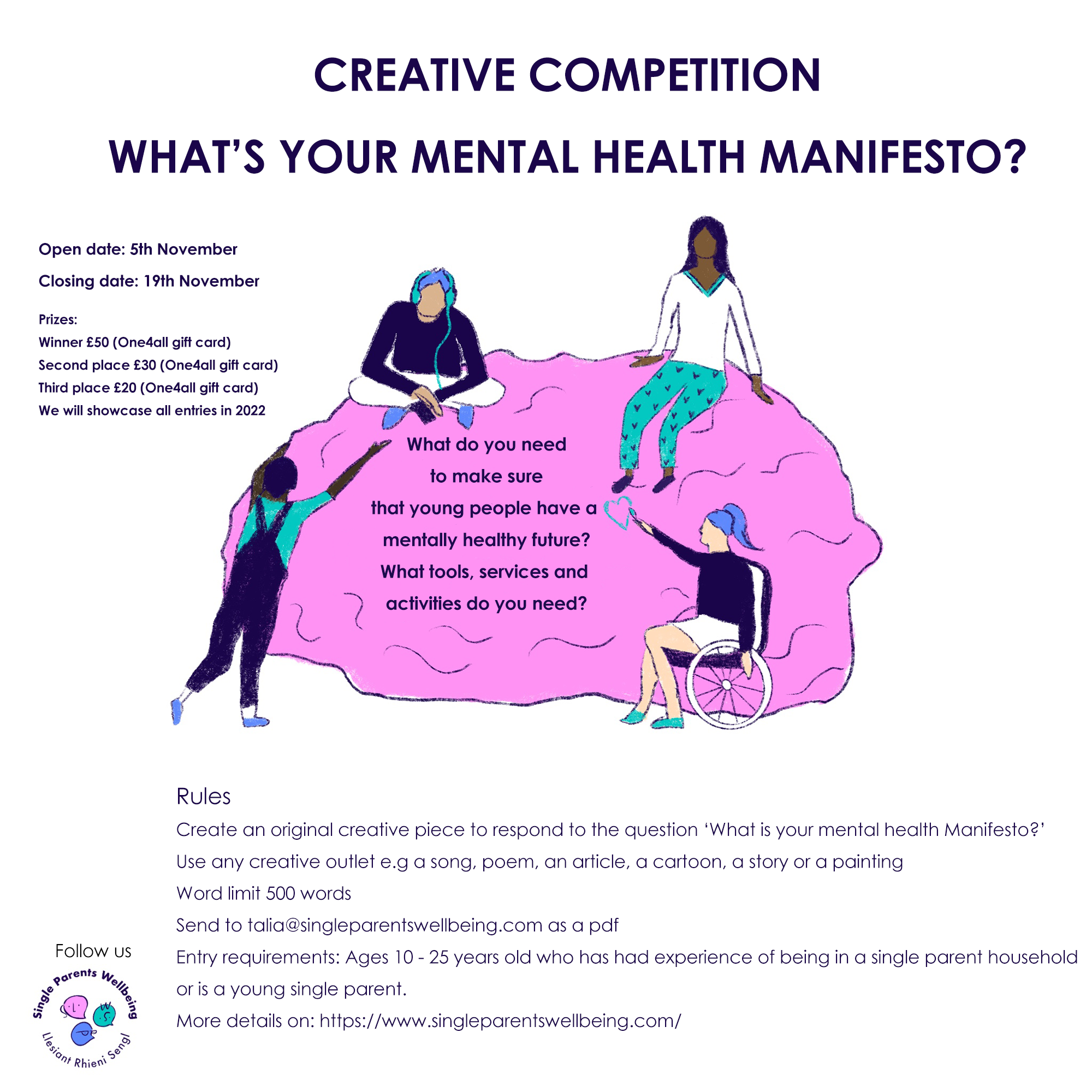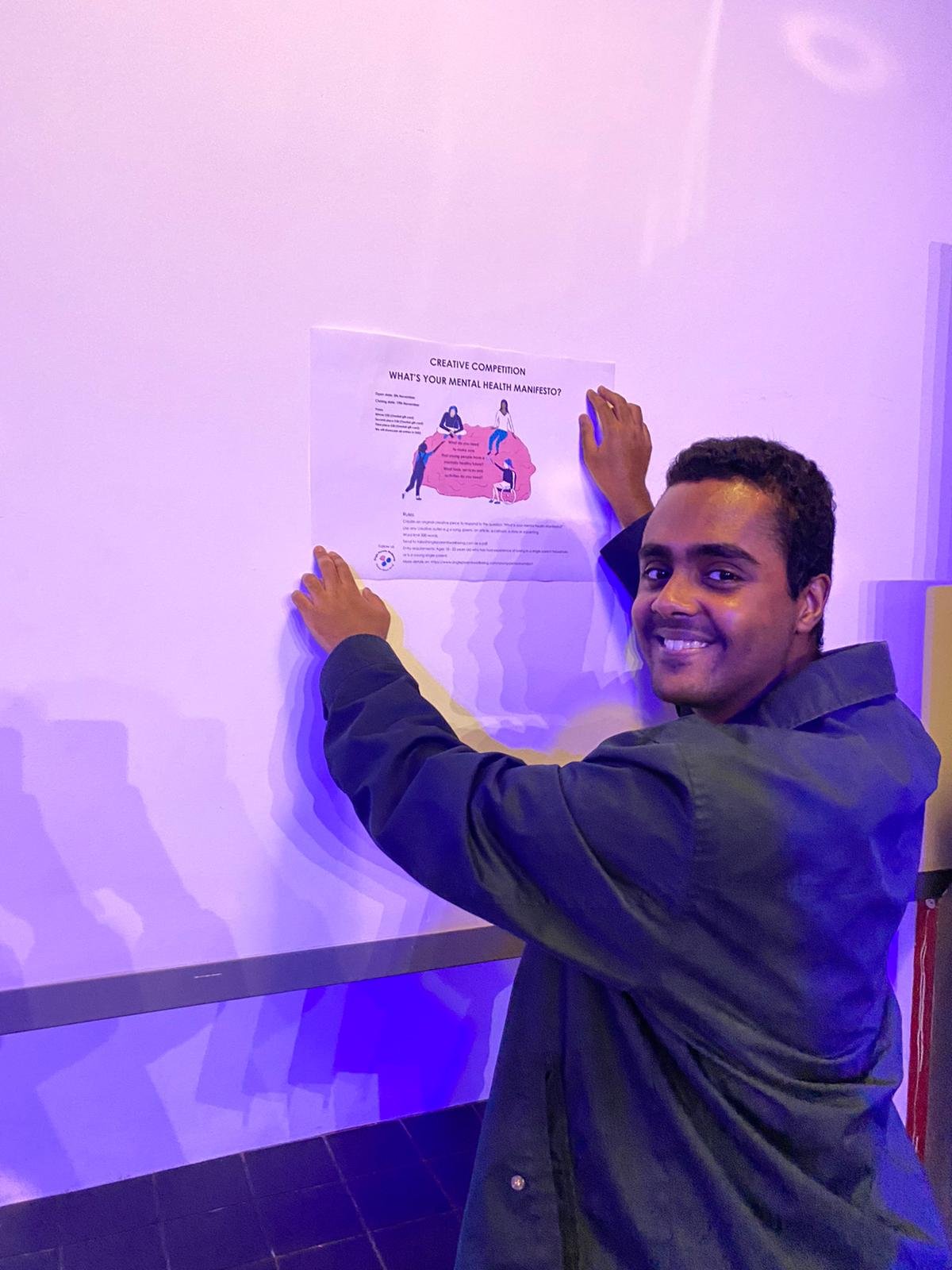Ihab Mohamed’s Mental Health Manifesto For Young People
We are reaching out to young people age 10-24 years old to enter our creative competition to communicate what is their mental health manifesto. Closing date is 19th November 2021 so get your entries in!
As part of our Young Person’s Project we wanted our team wanted to share their experiences of mental health, what has helped them and advice for other young people.
Ihab’s shares her story:
Personal Experience With Mental Health
My personal experience with mental health goes back a long, long way. I was born and raised in the Netherlands, 1997; originally coming from a Sudanese family. I moved to the UK when I was about 10. I have since moved houses a countless number of times and have really struggled with finding stability. I was raised as a muslim in a household with mum, dad and three siblings. I am the eldest. Being a black man, and the first born, growing up I never really talked about my feelings. It was all about being the ‘provider’. Since the beginning of my teenage years, I began to struggle with my mental health. I had insomnia, bouts of depression and anxiety. Sleep really affects my mood, especially when I get too much or too little of it. When I went to university, being away from my family and school friends, I noticed my mental health deteriorating. I didn’t enjoy the course I was on, I lost my faith and I felt anxious about the future. Luckily, I had a lot of support from friends at university. I felt particularly comfortable talking about my mental health to my friends. In hindsight, I wish I addressed my problems with my family and a professional as soon as they cropped up during puberty.
What Has Helped Me?
After Covid, when I noticed my mental health drop to alarming levels, I finally reached out for help. I went to the GP and asked to be referred to someone. I was put on sleeping medication to tackle my insomnia, and I was given antidepressants and anti-anxiety medication. I wish to get rid of the stigma of taking medication, some people just need that extra little help. I took part in 15 sessions of cognitive behavioural therapy (CBT), which really helped me to understand the link between: Thoughts, Feelings and Behaviours. Other things that help me are listening to music, going on a walk in nature, being creative, and using lots of ‘self care’ techniques. This can be as simple as taking a bath, or as involved as writing a poem.
Messages to Young People and Parents
I learned the hard way that communication with my family is absolutely crucial to confronting mental health in its beginning stages. My message to young people is to use whatever network of friends or family you have to be open and honest about your mental health. Work out what help you need, and don’t be afraid to ask for help. It’s completely normal and it can happen to anybody. My message to parents is to be vigilant, if a child’s behaviour rapidly changes, or they begin isolating themselves; as awkward as it may be, start the conversation. Try to relate and to share experiences with them.
What is your Mental Health Manifesto?
My vision of the future is to see a world where mental health is seen the same as physical health. No shame, no stigma, no denial. I wish there was more support at university, as I had to be put on a very long waiting list to be seen by a professional. And private therapy can be very expensive and not so accessible. I also wish young boys and girls could share their struggle with mental health without feeling ashamed or defeated. It’s a struggle that many people go through, and in no way means failure. In fact, it suggests quite the opposite!
Find out more about how to enter the creative competition to be within a chance of winning a £50 All4One voucher.



